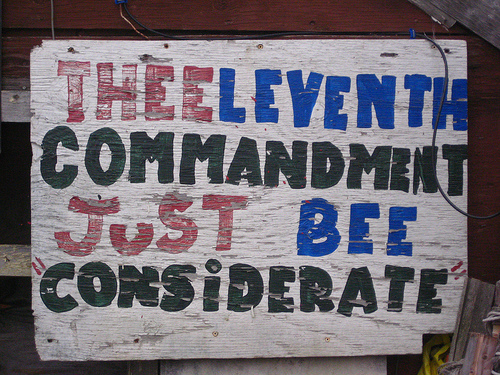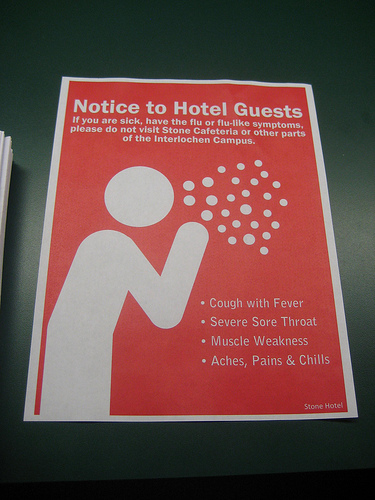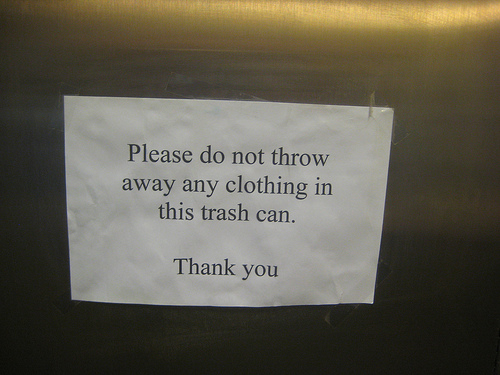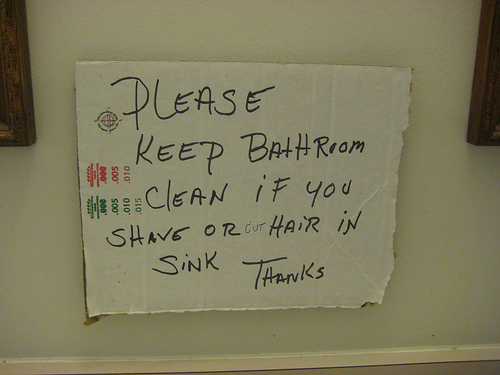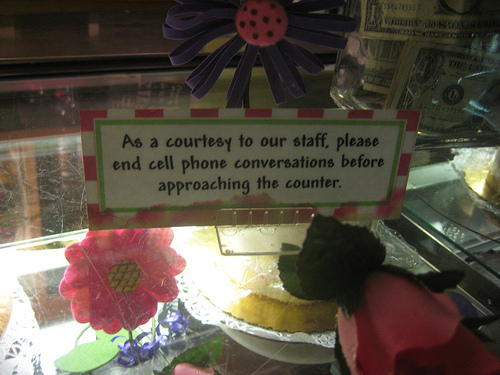First of all, Etiquetteer is writing about restaurant tipping only, and not the myriad of other service industries in which tipping is conducted. Let's establish that Etiquetteer has never been a fan of tipping. It is, however, the prevailing system in the restaurant industry, and regardless of how widely it's disliked, it isn't going away anytime soon. This means adapting to the prevailing tipping system of 15-20% of the total bill, depending on who you talk to. (Etiquetteer says 15%; other writers, and almost all restaurant server blogs, say 20%.) This also means tipping on the full amount of the bill if you are using a discount, coupon, or gift card. It is considered a kindness, when paying by credit card, to tip in cash so that the staff don't have to claim it separately when their shifts are over.
Bad service is the most legitimate reason not to tip fully, or not to tip at all. Etiquetteer encourages you not to be petty over brief delays in service - well, really, Etiquetteer encourages you not to be petty. Now if a waiter forgets an entire order for a member of your party (and this has happened to Etiquetteer), if a waiter spills a strawberry margarita on your head, etc., then you have sufficient grounds. Etiquetteer acknowledges that bad service happens, and that there are waiters and waitresses (Etiquetteer dislikes the term "server," but recognizes that that is an individual choice) who consistently perform poorly. Before tipping less than the standard percentage, consider also the circumstances. If the restaurant is full to bursting (think New York Saturday nights before the theatre, or Sunday anywhere after church - see below), delays in service are understandable; allowances must be made.
Quite possibly the worst, and certainly the most offensive, excuse not to leave a tip is proselytizing. Recently Etiquetteer discovered Sundays Are the Worst, a heart-breaking and angering blog about how poorly a segment of those who profess Christianity treat those who serve them. Pastor Chad Roberts and his congregation have created what might be the most innovative way ever to minister to a community in need; read how it came about here. Etiquetteer could spit tacks at some of the behavior exhibited - so much so that readers will have to peruse for themselves rather than read examples here. The Word of God may feed the soul, but it doesn't sustain our bodies as well as those who leave tracts instead of tips might light to think.
It's also worth pointing out that in a nation in which All Are Created Equal, it ill becomes anyone of any religion to behave as though they are "better" than anyone serving them. This doesn't mean that we all have become Best Friends Forever with those serving us, but it does mean acknowledging our Common Humanity.



